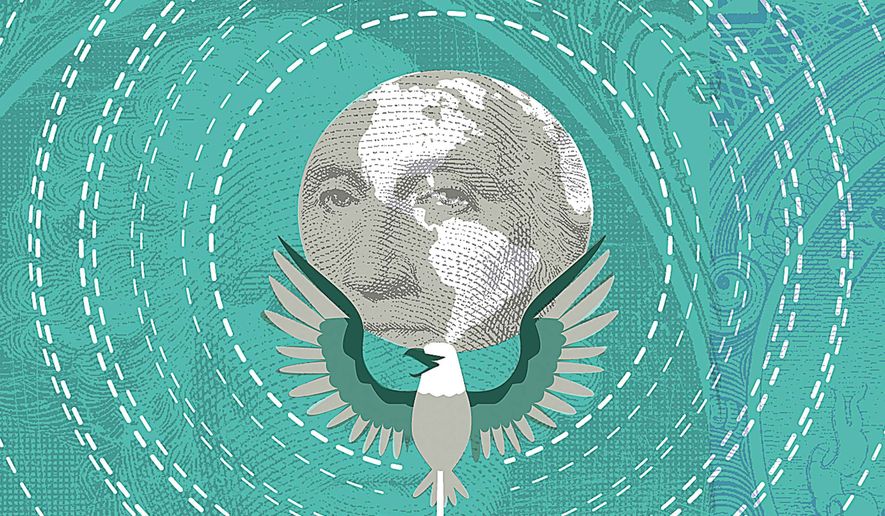OPINION:
As Republicans in the House and Senate search for ways to fund President Trump’s agenda in the upcoming budget reconciliation bill, they should remember the time-proven adage that “There’s no such thing as a free lunch.”
While some are hopeful that the administration can capture as much as $100 billion by auctioning wireless spectrum, lawmakers would be wise to ask, “What’s the catch?” If they do, they’ll find a better approach, one benefitting taxpayers and consumers alike.
Unquestionably, the federal government owns huge amounts of wireless spectrum, the radio frequencies that underpin everything from Wi-Fi internet to 5G cellular service to missile defense radars. Since the 1990s, Washington has routinely auctioned off chunks of this real estate to private companies, generating revenue for the federal government.
That 1990s system doesn’t work anymore. Back then, the government auctioned spectrum that had few, if any, users. But now, it has to auction bands that are heavily used, including by Department of Defense radar systems. The Navy has estimated that moving all of its systems to different bands would cost $250 billion and take decades. Spending $250 billion in costs to raise $100 billion in revenue is a great example of “only in Washington” math for which our government has become notorious.
Doing nothing isn’t a great solution for taxpayers or consumers, either. Wireless traffic grows yearly, especially over WiFi, which carries between 80% and 90% of smartphone internet traffic. Sooner or later, providers will need more capacity to keep up with consumer demand.
Spectrum sharing offers a plausible and workable solution. Federal incumbents like the Pentagon would get to stay in place, but private companies could come in and bid for licenses to safely share the same bands at lower power levels. Shared license auctions raise less in winning bids but also avoid the massive clearing costs that legacy “exclusive use” auction models require. Simply put, they could potentially make the government real money.
Spectrum sharing has significant benefits to consumers, too. Shared spectrum auctions let a much larger set of companies into the marketplace. While only a few big national cell phone companies could realistically compete for expensive exclusive-use spectrum licenses, more than 200 companies won licenses in the federal government’s first-ever shared-spectrum auction in 2020. That includes small, rural wireless internet providers to upstart cell phone providers.
That auction was a case study of American innovation. Faced with a resource constraint, it unlocked enormous new value for consumers.
Consumers benefit when more companies can bid in federal spectrum auctions. More competition encourages companies to provide better services at lower costs. That means more affordable cellular plans with faster speeds and better coverage. However, none of that happens if Washington puts its finger on the scale by effectively restricting spectrum auctions to only a few companies.
Republicans in Congress should encourage this progress, letting the free market determine what’s best for Americans. Instead of picking winners and losers between big, exclusive licenses or the smaller, shared licenses, Congress could require that both auctions happen simultaneously, in parallel. Whichever auction generates the most revenue, after fully accounting for clearing costs, would be the winner.
These “dual-track auctions” benefit everyone. Taxpayers come out ahead because the competition between the two models spurs bidding companies up the ante. If previous spectrum auctions are a guide, this approach could generate tens of billions of additional federal revenue. That’s a big pot of money Republicans could use to offset the costs of the reconciliation bill.
The biggest benefits, however, will flow to consumers. More competition in the cellular and wireless space will push big and small companies alike to up their game, offering better services at lower prices. That’s the power of the free market. This isn’t only about unlocking new revenue to fund President Trump’s agenda. It’s key to fulfilling his promise to unleash a new era of growth and prosperity for American consumers.
• Matthew Kandrach is president of Consumer Action for a Strong Economy.




Please read our comment policy before commenting.